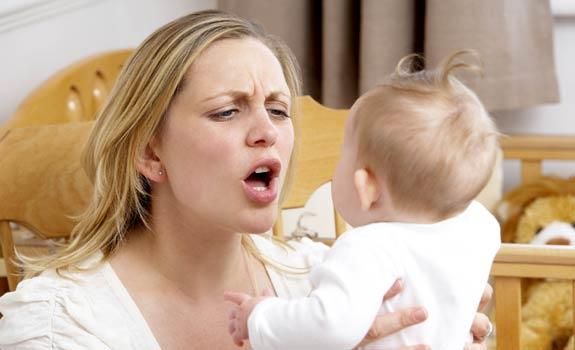Postpartum Depression vs. Baby Blues |
|
 What are the signs of postpartum depression vs. simple "baby blues" (a.k.a. the "postpartum blues")? What are the signs of postpartum depression vs. simple "baby blues" (a.k.a. the "postpartum blues")?
The "baby blues" (a.k.a. the "postpartum blues") typically peak four to five days after you give birth and fade away around the tenth day postpartum, as your body makes the hormonal transition from a pregnant to a non-pregnant state.
While the baby blues feel decidedly awful while you're living through them (the result of the dramatic hormonal upheaval that you're experiencing combined with the other physiological and emotional stresses challenges of the early days postpartum), the feelings of depression that you may experience are much less severe than what you can expect to experience with full-blown postpartum depression. Even more importantly, the baby blues are relatively short-lived. You start feeling more "normal" (or as normal as any mom with a new baby can be expected to feel) within a week or two.
While all mothers are at risk of developing postpartum depression or some other type of postpartum mood disorder (e.g., postpartum anxiety, for example), postpartum depression is more likely to occur in women:
- who have a history of postpartum depression (they face a 50-62 percent risk of experiencing a recurrence);
- who have experienced a previous episode of depression themselves (they have a 30 percent risk of developing postpartum depression) or
- who have a family history of mood disorders, a history of premenstrual dysphoric disorder (but not necessarily the milder and better known version of this disorder, premenstrual syndrome);
- who have a lot of other stress in their lives; and who don't have adequate support from friends and family.
When postpartum depression occurs, it is most likely to occur during the early months after the birth after giving birth. An episode of postpartum depression typically lasts from two to six months, although it is not unusual for a mother to still be experiencing some symptoms of postpartum depression a year after giving birth.
The good news is that postpartum depression responds well to treatment.
Our Adverts: So what about mature dating?
|
|